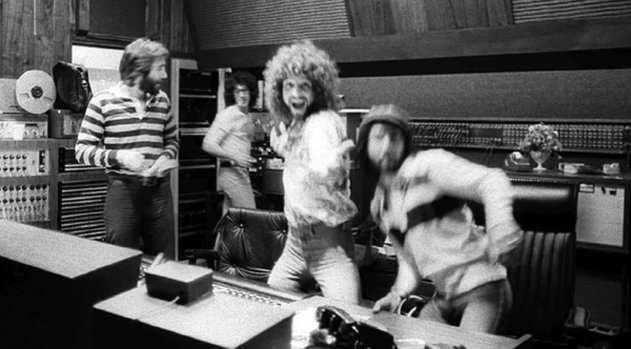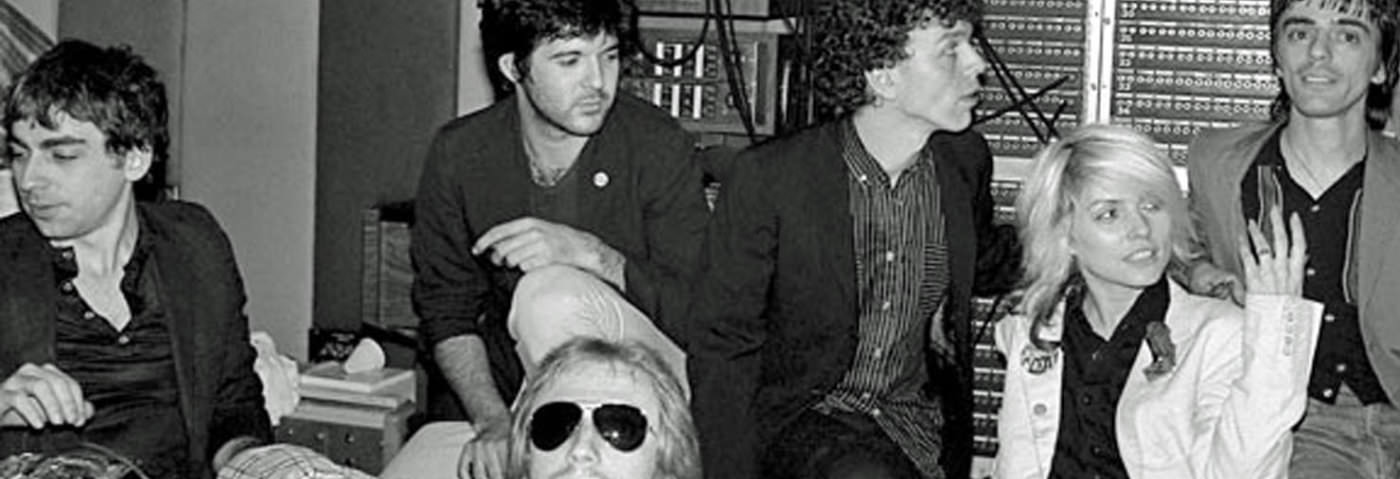As dance music producers we sometimes forget how much we have in common with our counterparts in the worlds of rock and pop. As David Felton explains, we can learn a lot from other genres…

Fleetwood Mac pictured during the chemical-fuelled sessions for Rumours
The second half of last year I spent editing Classic Tracks – The real stories behind 68 seminal recordings. It was the third book I’ve edited, but it was the first one that veers dramatically away from dance music to embrace the wider music world. So while there are dance artists featured in there – like Justice and Tricky – the vast majority of artists profiled are from other worlds: rock, pop, indie, hip hop, jazz, soul and metal.
Through conversations with a long list of engineers and producers, from Nile Rodgers to Trevor Horn, Butch Vig to Tony Visconti, the book details the studio sessions that led to such iconic tracks as The Police’s ‘Every Breath You Take’, The Kinks’ ‘You Really Got Me’, Fleetwood Mac’s ‘Go Your Own Way’, Don McLean’s ‘American Pie’, Nirvana’s ‘Smells Like Teen Spirit’ and Michael Jackson’s ‘Black Or White’.
One of the main themes that comes up time and again is how few differences there are between the worlds of these big producers and our own, often isolated, world of production. And because my heart and soul has always been in electronic music, I kept relating the struggles and lessons of the legends of the past to those faced by those of us who work in the world of dance music production.
Here are the five that struck me most…
1 – The best tracks take time
How many times do you hear producers talk about their best tracks being ‘made in a couple of hours’? Too often. And there’s a grain of truth in there – labouring over every decision is hardly conducive to surfing the creative fast-lane. Often the best ideas are the ones which come together very quickly. But for every speedily penned and engineered masterpiece there are dozens of songs that have spent weeks, months – even years – to work into their finished shape.
Take Michael Jackson’s number one smash ‘Black Or White’. What started as a simple country-style riff and vocal refrain (recorded in the space of the first few days of the Dangerous
sessions), evolved over the course of eighteen months into a musically and stylistically complex opus.
Similar examples abound. Supertramp’s ‘The Logical Song’ was nine months in the making (four weeks recording the basic tracks, another four weeks for the mixdown, with an exhausting seven month period between filled by overdubs). In the end, the only thing that stopped the project from going on longer was a non-negotiable deadline from record label A&M to get the album mastered for imminent release. “When you’re doing something by instinct you can do it really quickly,” noted engineer Peter Henderson. “As time ran out and we got down to the wire, the instinct came back in a hurry and we just got on with it. Thank God it all worked out.”
In the case of Don McLean’s American Pie, the main man’s backing band – at the behest of hands-on producer Ed Freeman – spent two whole weeks in the studio before Freeman even considered pressing the record button. That’s two whole weeks spent routining a song that had already been written and arranged. Only then was it time to start comping, editing and mixing.
But these were only mild examples. How about the two years Shane MacGowan and Jem Finer spent crafting The Pogues’ ‘Fairytale of New York’? Or the six years it took to write, refine and then record and master The Rolling Stones’ ‘Start Me Up’? (The song was first recorded in 1975 with a reggae feel, then again in 1978 with a rocky vibe – before being completed for Tattoo You
in 1981.)
Which is all to say that great music rarely makes it onto tape (or hard drive) in the space of a few inspired hours.
So whenever you next feel that your latest masterpiece is stuck in the doldrums, don’t get too disheartened; even the finest talents struggle. There’s nothing wrong with putting a song on the back-burner and returning to it days, weeks or even years later. In many ways it’s the persistence that matters. And the overriding faith that the song you’re working on is worth seeing through to the end. However far away that is.
Great music rarely makes it onto tape in the space of a few inspired hours.
2 – It’s all about the performance
Although ‘performance’ in its strictest sense – playing instruments live and recording the result – is something that few dance producers get involved with, I did end up thinking that we have lost something musically important by moving almost completely inside the box and focusing on programming rather than playing.
That’s not to undermine the myriad benefits offered by the range of accessible technology available to us today, or the ability we have to work on the road, or – perhaps most of all – that fact that we can own a whole studio’s worth of virtual kit for the price of just one vintage mic or pre-amp.
But I think it is legitimate to lament the passing of so much knowledge relating to the actual recording of sound. I wonder how many ‘music producers’ or ‘mix engineers’ in our brave new world, for example, have ever actually set up mics above a piano, or around a drum kit?

06.54 PM
Great and inspiring article1
01.57 PM
What a fantastic subject to read about. I’m working on a track right now and I thought I’m taking ages knowing that the most parts were written in an hour. I’m not saying I’m writing a classic but I want every part of it to be good enough to be part of the track/song. Transitions, drops, fx, vocals, mixing, levels. Everything. I rather write 10 good songs in my life than 100 crappy ones.
05.53 AM
Yeah man.
Make dance music without trying to sound like dance music.
08.34 PM
Nice article. But I need to point out that Dire Straits didn’t have an album called “Money For Nothing”. It was called “Brothers In Arms”.
10.46 AM
Steve – I stand absolutely corrected. Text amended. Thanks 🙂